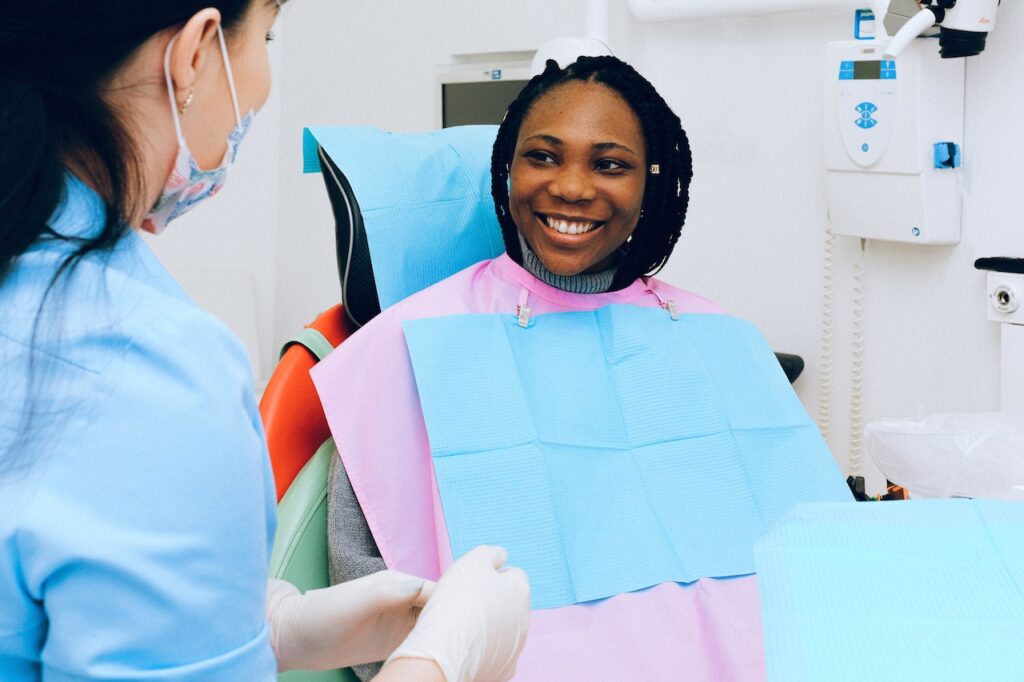It’s normal to feel nervous when a dentist recommends pulling a tooth. But don’t worry—tooth extractions are a very common procedure that usually go smoothly and painlessly. Here’s what to expect during a tooth extraction.
When Is a Tooth Extraction Necessary?
As dentists, we always do our best to preserve your natural teeth. Just because a tooth is broken or decayed doesn’t automatically mean it will need to be extracted. But in some cases, pulling a tooth is the best way to protect your other teeth.
An extraction is typically recommended when:
- Advanced decay affects a large portion of the tooth
- The tooth cannot be saved with a root canal
- There is root damage caused by severe gum disease or an injury
- Correcting a misaligned bite caused by overcrowding
- The tooth is impacted (not fully emerged from the gums, a common issue with wisdom teeth)
Will It Hurt to Get My Tooth Pulled?
One of the most common concerns people have about tooth extractions is whether or not the procedure will be painful. Although you may feel some pressure, the use of anesthesia prevents any pain during the extraction.
As the anesthesia wears off after the procedure, your mouth will start to feel sore. But if you choose to get PRF therapy during the extraction, it can help minimize any pain or discomfort afterward by naturally accelerating the healing process. In addition, our pain protocols will help instruct you on how to control the discomfort as you heal.
What Happens During a Tooth Extraction?
Knowing what to expect during tooth extraction can help calm your nerves. Here’s a step-by-step guide to the tooth extraction procedure.
Step 1: Examination
Before you get a tooth pulled, you will first need a thorough examination from your dentist. They will take x-rays or a CBCT scan to diagnose the condition of the tooth and determine whether extraction is the correct treatment. If so, you will need to schedule an extraction appointment.
Step 2: Administering Anesthesia
At the beginning of your extraction appointment, you will receive local anesthesia to numb the area surrounding the tooth. This ensures you won’t feel any pain during the procedure. For more anxious patients and complex extractions such as impacted wisdom teeth, IV sedation can provide an even more comfortable experience.
Step 3: Loosening the Tooth
After anesthesia has been administered, your dentist will begin the extraction process. Specialized instruments, such as elevators and forceps, are used to gently loosen the tooth from its socket. In the case of impacted teeth, your dentist will make a small incision in the gums, then carefully break the tooth into smaller pieces for easy removal.
Step 4: Removing the Tooth
Once the tooth has been loosened or broken up, your dentist will carefully remove it from its socket. Next, they will place stitches if an incision was made, and place gauze over the extraction site to control bleeding and promote the formation of a blood clot.
Step 5: Post-Extraction Care
At the end of your appointment, you will be instructed on how to properly care for the extraction site. You will need to avoid smoking as well as drinking through a straw, and avoid brushing the tooth socket so that you do not dislodge the blood clot. To reduce swelling and tenderness, you may need to take some over-the-counter pain medication. You might also need to eat a soft food diet for a few days as a precaution.
Step 7: Follow-Up Appointment
Depending on the complexity of the extraction procedure, you may need to attend a follow-up visit about a week later. Your dentist will evaluate how well the extraction site has healed, and address any questions or concerns you may have.
Expert Tooth Extractions in South Jordan
We know that the idea of having a tooth pulled can feel overwhelming. That’s why at Copper Creek Dental, we use advanced in-house technology and innovative treatments such as PRF therapy to make tooth extractions as comfortable as possible.
If you’re experiencing any dental issues or suspect you may need a tooth extraction, give us a call at 801-280-1911 to schedule an appointment.
Images used under creative commons license – commercial use (7/12/2023). Photo by Anna Shvets on Pexels

